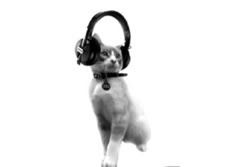 The invention of the mp3 and Napster (aka the digital revolution) has turned the music industry upside down, leaving music execs and artists scrambling to make dollars and sense of it all. This is the subject of Rolling Stone writer Steve Knopper's latest book Appetite for Self-Destruction: The Spectacular Crash of the Record Industry in the Digital Age. "Gone are the days when you had no choice but to depend on Sony to discover you, get you onto the radio, and make you a mega-star," explains Knopper when I asked him a few questions about the current state of the business.
The invention of the mp3 and Napster (aka the digital revolution) has turned the music industry upside down, leaving music execs and artists scrambling to make dollars and sense of it all. This is the subject of Rolling Stone writer Steve Knopper's latest book Appetite for Self-Destruction: The Spectacular Crash of the Record Industry in the Digital Age. "Gone are the days when you had no choice but to depend on Sony to discover you, get you onto the radio, and make you a mega-star," explains Knopper when I asked him a few questions about the current state of the business."The upside to this," Knopper notes, "is that an artist today can break more easily than ever before. A band's success,” he adds, “is only limited to how aggressive and creative they are at marketing their music." He offers websites, My space, and You tube as examples of ways of getting noticed.
But the clients I work with want to know, with CD sales on the rapid decline, how do you make money? "It's all about promoting yourself creatively and then selling something on the back end," notes Knopper. “You reel people in with free tracks, a mixtape or a live show, and then you sell your music.”
Knopper adds that acts can go to outlets like Tune core, where there’s a nominal fee to put any track on I tunes, Napster, Rhapsody, and other digital distribution outlets.
It's the concert model (which it was the way it used to be), says Knopper, that all artists must conform to, even Madonna. “Concerts are the only format not threatened by illegal downloading. "If you can get people into your shows, you can sell vinyl, CDs, and merchandise.”
Knopper is the eternal optimist, believing the sky's the limit for new acts. “There are more tools in an artist's toolbox than ever before. Perfect your live show. Play local shows and go out on the road and build a fan base slowly,” says the writer who, lest you think is an out of touch journalist, has his own band called The Propane Daisies and has had to play gigs in Denver for four people like everyone else.
He also adds that going beyond the usual My space, You tube viral campaigns by doing something that will grab people's attention. Finally, he suggests, look at an artist such as Secondhand Serenade, who has been extremely successful at marketing himself--and make that a blueprint for your band."
All of this, of course, begs the question: Will major labels become extinct? “There will always be major labels for the Beyonces of the world,” believes Knopper, “But maybe only one or two. I anticipate some day Apple merging with EMI. Now that's gonna be wild.”


No comments:
Post a Comment